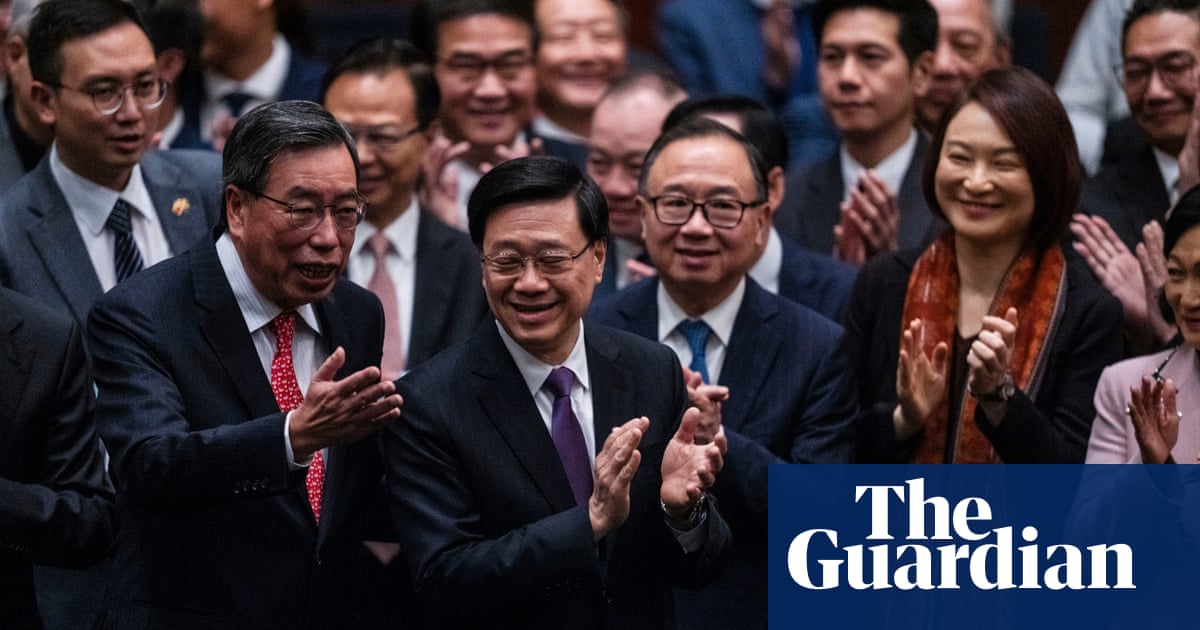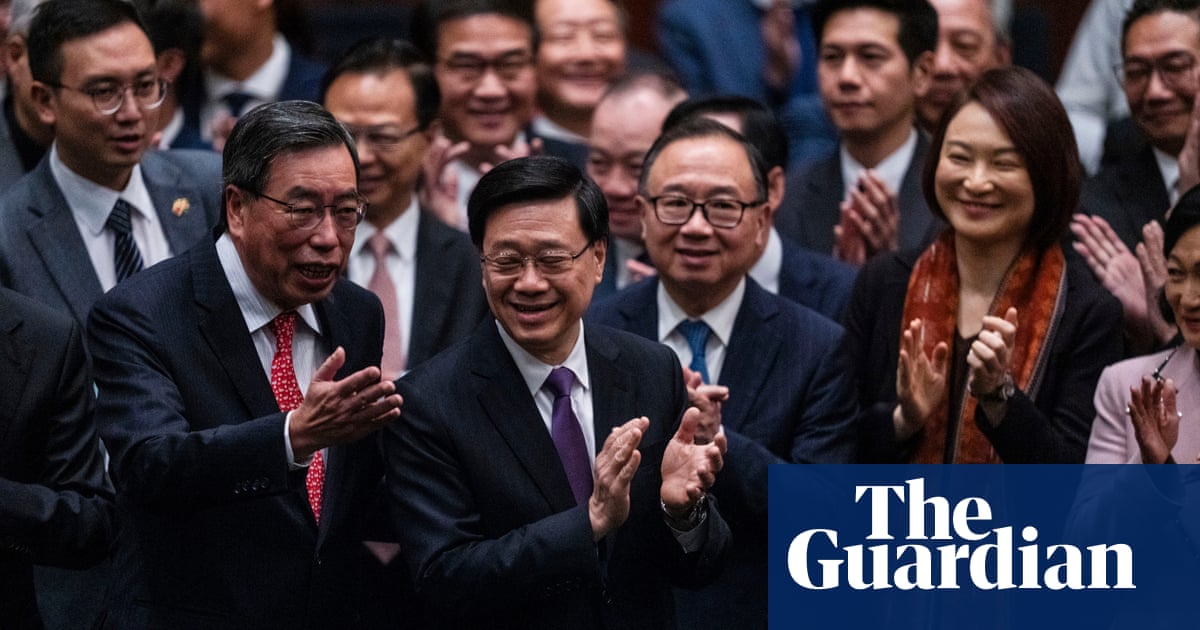
The European Union has sounded the alarm over Hong Kong’s new national security bill, saying it had the potential to “significantly” affect the work of the EU’s office and the territory’s status as a business hub.
On Tuesday Hong Kong lawmakers unanimously passed the new bill only two weeks after it was first presented, fast-tracking a major piece of legislation that critics say further threatens the city’s freedoms.
The package, known as Article 23, punishes offences including treason, sabotage, sedition, the theft of state secrets, external interference and espionage with sentences ranging from several years to life imprisonment.
After the vote, Hong Kong’s leader, John Lee, said that the law would take effect Saturday.
“Today is a historic moment for Hong Kong,” he said on Tuesday.
The European Union joined a chorus of criticism of the bill, saying in a statement it was concerned about the “potential impact on the rights and freedoms of the people of Hong Kong”.
“This also raises questions about Hong Kong’s long-term attractiveness as an international business hub,” it said.
Earlier the United Nations said the bill was deeply worrying and could erode fundamental freedoms.
“It is alarming that such consequential legislation was rushed through the legislature through an accelerated process, in spite of serious concerns raised about the incompatibility of many of its provisions with international human rights law,” said United Nations high commissioner for human rights, Volker Turk, in a statement released on Tuesday.
The legislation follows a China-imposed national security law passed in 2020 after violent street protests a year earlier.
Since the law was imposed, scores of pro-democracy activists have been jailed and the legislation also triggered sanctions from the United States, including against Lee and other senior government officials.
Turk’s statement said that broadly defined and vague provisions in the bill could lead to the “criminalisation of a wide range of conduct protected under international human rights law, including freedom of expression, peaceful assembly and the right to receive and impart information.”
For it to be passed without a “thorough process of deliberation and meaningful consultation is a regressive step for the protection of human rights in Hong Kong,” he said.
Britain said the legislation would impact Hong Kong’s reputation as an international city that respects the rule of law, has independent institutions and protects its citizens’ freedoms.
State department spokesperson Vedant Patel meanwhile told reporters that the United States was “alarmed by the sweeping and what we interpret as vaguely defined provisions” in the law. The Amnesty International rights group called the law “draconian”.
Beijing’s foreign affairs commissioner blasted Britain for being “hypocritical and exercising double standards”, as it referred to London’s own national security laws, including one passed last year.
“The United Kingdom has been making inflammatory and irresponsible comments on Hong Kong’s situation … it’s all due to the deep-rooted mindset as a coloniser and preacher,” it said in a statement Wednesday.
“We urge the UK to set its position right, face the reality, and give up on the fantasy of continuing its colonial influence in Hong Kong.”
China’s State Council Hong Kong and Macau Affairs Office, said the law would “secure Hong Kong’s prosperity and stability” as well as safeguard the interests of overseas investors, democracy and freedom.












